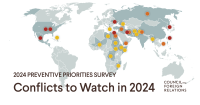As we navigate through 2024, the political landscape is shaped by a myriad of factors including technological advancements, social movements, and the ongoing effects of global events. This year is marked by significant shifts in political dynamics, voter engagement, and policy focus. This article explores the key trends and developments influencing politics in 2024.
1. Impact of Technology on Political Campaigns
Technology continues to revolutionize the way political campaigns are conducted. In 2024, we see:
- Data-Driven Campaigning: Political parties are increasingly leveraging big data and analytics to identify and engage potential voters. This includes micro-targeting specific demographics with tailored messages.
- Social Media Influence: Social media platforms remain critical for political communication. Candidates utilize these channels not just for campaigning but also for engaging directly with voters, responding to concerns in real-time, and rallying support.
Observation: The importance of digital strategy is paramount, with campaigns needing to adapt quickly to changing online landscapes.
2. Rise of Populism and Nationalism
The global rise of populist and nationalist movements continues to shape politics in 2024. This trend is characterized by:
- Anti-Establishment Sentiment: Many voters express discontent with traditional political elites, driving support for candidates who promise to disrupt the status quo.
- Focus on Sovereignty: Issues such as immigration, trade, and national identity have taken center stage, with political leaders capitalizing on public sentiment to promote policies that prioritize national interests.
Observation: This trend complicates international relations, as nations navigate internal pressures while addressing global challenges.
3. Increased Voter Engagement and Activism
Voter engagement has seen a significant uptick in 2024, driven by various factors:
- Grassroots Movements: Social movements advocating for climate action, racial justice, and economic equality have mobilized citizens, leading to increased participation in elections and advocacy efforts.
- Youth Involvement: Younger voters are more politically active than ever, utilizing social media and digital platforms to organize, raise awareness, and influence policy discussions.
Observation: This heightened engagement represents a shift towards a more participatory democracy, where citizens are demanding accountability and transparency from their leaders.
4. Shifts in Global Alliances
The geopolitical landscape is undergoing transformations in 2024, influencing political dynamics on multiple fronts:
- Emerging Powers: Countries like India and Brazil are playing increasingly significant roles on the world stage, altering traditional alliances and power structures.
- Regional Conflicts: Ongoing tensions in various regions, including Eastern Europe and the South China Sea, are reshaping foreign policy priorities and national security strategies for many nations.
Observation: The shifting global alliances require countries to be agile and adaptable in their foreign policies to address new challenges.
5. Focus on Climate Change and Sustainability
Climate change remains a critical issue in 2024, influencing political agendas globally. Key trends include:
- Legislative Action: Governments are prioritizing policies aimed at reducing carbon emissions, transitioning to renewable energy sources, and promoting sustainable practices.
- Public Pressure: Activists and the general public are demanding stronger action from political leaders, leading to increased scrutiny of corporate and government environmental policies.
Observation: The political landscape is increasingly shaped by environmental concerns, with climate change becoming a central issue in campaigns and policymaking.
6. Evolving Electoral Processes
In 2024, electoral processes are evolving to enhance accessibility and security:
- Voting Technology: Innovations in voting technology, including online voting and blockchain-based systems, are being explored to improve the electoral process and voter trust.
- Electoral Reforms: Many jurisdictions are implementing reforms to combat gerrymandering, improve voter access, and ensure fair representation.
Observation: These changes aim to bolster public confidence in democratic processes and encourage higher voter turnout.
Conclusion
The political landscape of 2024 is characterized by rapid change, driven by technological advancements, shifting social movements, and evolving global dynamics. As voters become more engaged and demand accountability, political leaders must adapt to these trends to remain relevant and responsive. The intersection of populism, activism, and climate consciousness will shape the political discourse, influencing not only electoral outcomes but also long-term policy directions. As we move forward, understanding these key trends will be essential for navigating the complexities of the political landscape in the coming year and beyond.







